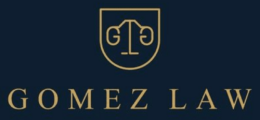The Office of the Attorney General for California notes that it does not handle most homeowners associations (HOA) complaints. Problems with HOAs in California are largely private matters requiring private legal representation.
HOAs in California are largely governed by the Davis–Stirling Common Interest Development Act in the California Civil Code. Under Davis–Stirling, the prevailing party in a legal action can be entitled to attorney fees and other costs of litigation.
Common Kinds of HOA Claims in California
HOAs can become involved in disputes that lead to litigation because of any one of a number of issues usually relating to a resident’s daily living. Some of the most common issues involved in HOA litigation in California include, but are not limited to:
- Failure to maintain or repair common interest developments;
- Denial of proposed architectural plans;
- Failure to comply with records request;
- Breach of board rules;
- Improper fines;
- Unlawful restrictions; and
- Discrimination.
Disputes involving HOAs can involve public or private concerns. HOA members can be extremely confused about what their legal rights are when they are involved in any kind of issue with their respective HOAs.
California Conditions, Covenants and Restrictions
Under Davis–Stirling, the developer of an HOA must create a Declaration of Covenants, Conditions, and Restrictions (CC&R) that typically regulates the use, appearance, and maintenance of HOA property. A CC&R is legally binding, and a person is automatically a member of an HOA and thus subject to the CC&R when he or she buys property in an HOA community.
A CC&R not only imposes a number of restrictions relating to property use as well as requirements relating to insurance, but it also identifies the maintenance obligations of both property owners and the HOAs. The CC&R can also establish how disputes will be resolved and rules will be enforced.
The manner in which an HOA is governed is also typically established in the CC&R. The CC&R can also provide how often HOA board elections are held, what the duties of board members are, and how new board members may be elected.
The important thing to remember about CC&Rs is that they can be changed. Any change to a CC&R still needs to be properly administered and filed in order to be lawful.
When a person does not abide by the terms of a CC&R, the HOA may impose any one of a number of possible penalties that are usually outlined in the CC&R. Some HOAs may attempt to invoke rules or regulation in CC&Rs that violate other state and federal laws, and are thus, unenforceable.
Find a Real Estate Lawyer in Los Angeles
Are you an HOA member who is considering legal action to resolve a property rights dispute? You will want to make sure that you contact Gomez Law, APC for experienced legal representation.
Our experienced real estate attorneys represent clients throughout the greater Los Angeles area. Call US or contact us online today to have our lawyers review your case and help you understand all of your legal options during a Free Consultation *.
Please call our office to be connected with a member of our intake team, or fill out our intake form by clicking here.


